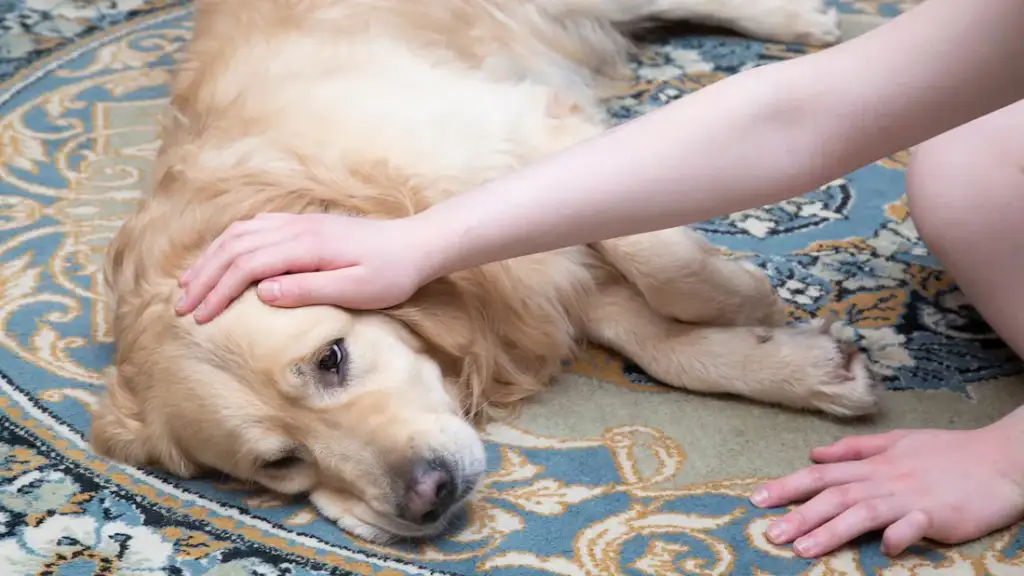Have you found yourself Googling “why is my dog shaking?” You’re not alone—and you’re in the right place. Dogs can shake for a wide variety of reasons, from harmless excitement to serious medical issues that require immediate attention. As a veterinarian here in Johns Creek, GA, I’ve seen it all—from tiny dogs shivering from cold to more alarming cases like toxin ingestion or neurological disorders.
Understanding what’s normal and what’s cause for concern can make a big difference in your dog’s health and your peace of mind. So let’s break it down.
Is Dog Shaking Always a Problem?
Not necessarily. Just like people might get chills or tremble when they’re nervous or excited, dogs can shake for everyday reasons. However, persistent or sudden shaking—especially if it comes with other symptoms—can signal a more serious issue.
A single sneeze doesn’t mean you have the flu, but if you’re sneezing, coughing, and running a fever, you’d probably see a doctor. The same is true for your dog. A little shake when they hear your car pull in? Totally normal. But if your dog is shaking and also exhibiting other concerning symptoms like vomiting, weakness, or confusion? That’s worth a call to your vet.
Common Reasons Why Dogs Shake
Dogs shake for many different reasons—some completely normal, others worth a little more attention. Below are the most common causes we see in our clinic, plus what you can do about them at home.
1. They’re Cold
Smaller dogs, dogs with short hair, or older dogs tend to shake when they’re cold. Certain breeds like Chihuahuas, Greyhounds, and other lean pups simply don’t have the body fat to insulate well. Puppies and senior dogs are also more sensitive to cold because their bodies don’t regulate temperature as efficiently as healthy adult dogs.
Make sure your dog has access to a cozy, warm place to curl up. A dog sweater, heated pet bed, or soft fleece blanket can work wonders. On especially cold days, limit their outdoor time to potty breaks only, and dry them off quickly if they get wet.
2. They’re Excited
If your dog shakes every time you walk in the door or grab the leash, that could just be excitement. You might notice their tail wagging furiously, ears perked up, or their whole body vibrating with energy. This is especially true in puppies and small breed dogs.
Excitement releases adrenaline, which can trigger temporary trembling or shaking. It’s completely normal—but be sure to pair excitement with calm cues to avoid overstimulation.
3. They’re Anxious or Scared
Dogs also shake in response to stress. Common triggers include:
- Thunderstorms
- Fireworks
- Separation anxiety
- Trips to the vet (yep, we see it all the time!)
Try creating a safe space in your home where your dog feels secure. This could be a cozy crate, a quiet room, or a special spot with their favorite blanket or toy. If anxiety is ongoing, we can help with medical or behavioral support.
Medical Conditions That Cause Dog Shaking
While some shaking is harmless, uncontrollable shaking combined with other signs could signal an underlying medical condition that needs veterinary attention.
4. Pain or Injury
Pain is a big one. Muscle tremors, limping, whining, or licking a certain area can all point to discomfort. Arthritis in older dogs is a common culprit. We can help manage pain with medication, lifestyle adjustments, or physical therapy tailored to your dog’s needs.
5. Generalized Tremor Syndrome (GTS)
Also called “white shaker dog syndrome,” this affects many small white dogs like West Highland White Terriers. It’s a neurological condition that causes affected dogs to have full-body tremors. Treatment typically involves steroids and monitoring by your veterinarian.
6. Toxin Ingestion
If your dog gets into something they shouldn’t—like chocolate, xylitol (found in sugar-free gum), grapes, raisins, certain houseplants, or chemicals—you might see shaking as an early symptom of poisoning.
Emergency Symptoms May Include:
- Vomiting or diarrhea
- Drooling excessively
- Rapid breathing or panting
- Muscle tremors or seizures
- Collapse or unresponsiveness
If you notice any of these signs, call an emergency veterinarian immediately. Poisoning can progress quickly and may require urgent treatment like vomiting induction, activated charcoal, IV fluids, or hospitalization.
7. Neurological Disorders
Seizures, distemper, or brain inflammation can all cause trembling in dogs. Puppies who are not fully vaccinated are especially at risk for diseases like canine distemper. Make sure your dog is fully vaccinated to prevent these serious illnesses.
8. Hypoglycemia (Low Blood Sugar)
This is especially common in young dogs and toy breeds. Their tiny bodies can burn through energy quickly, leading to dangerously low blood sugar levels. Other symptoms include lethargy, weakness, and confusion.
If your dog seems wobbly or confused, offer a small meal or a dab of honey on their gums (if safe to do so). Then contact your veterinarian for further guidance.
9. Old Age or Muscle Weakness
Older dogs may develop tremors in their hind legs or throughout their body simply due to age-related changes. Ask us about senior wellness programs, joint supplements, and pain management options that can help keep your aging pup comfortable and active.
10. Ear Infections or Ear Problems
Dogs with chronic ear infections might shake their head or tremble due to discomfort or imbalance. Watch for signs like head tilting, scratching at the ears, or foul-smelling discharge. If you notice any of these, book an exam so we can clean the ears safely, treat any infection, and relieve your dog’s discomfort.
When to Worry: Signs You Should See a Vet


Call your vet immediately if:
- The shaking is sudden and intense
- Your dog also shows vomiting, diarrhea, or weakness
- There’s no clear cause (like cold or excitement)
- You suspect your dog ingested something toxic
- Shaking continues for more than a few minutes or worsens
At ModernVet in Johns Creek, we’ll perform a full physical exam, run diagnostics if needed, and talk with you one-on-one to figure out what’s going on.
Home Care: What You Can Do Right Now
While some cases of dog trembling or shaking require urgent veterinary attention, there are a few simple things you can do at home to comfort your dog and assess the situation before you call.
Keep Your Dog Warm
Small breeds, short-haired dogs, seniors, and puppies are especially sensitive to cold. If it’s cold, wrap your pup in a blanket and limit outdoor exposure.
Minimize Stress
Shaking is one of the most common signs of anxiety in dogs. If your dog is anxious, create a calm environment. Use puzzle toys, soft music, and consider anxiety vests.
Check for External Injuries
Take a few moments to gently inspect your dog for any signs of pain or injury. Look for swelling, limping, cuts, bruises, or areas that seem sensitive when you touch them. Pay close attention to their paws, legs, belly, and back.
Don’t Self-Medicate
It’s tempting to reach into your own medicine cabinet when your dog seems uncomfortable, but please don’t give your dog Tylenol or human meds. Always check with your vet first.
Reach Out
Even if you’re not sure, give us a call. At ModernVet, we’d rather chat with you and rule something out than have you lose sleep over it.
How ModernVet Can Help
At ModernVet, we specialize in relationship-based medicine. That means we know your pet—and you—well enough to notice subtle changes. Whether it’s a sudden tremor, a change in behavior or just a gut feeling that something’s off we take it seriously. You’ll speak directly with your vet after every visit, and we’ll walk you through next steps with empathy and clarity.
If you’re still wondering about your dog shaking or other body language that may signal something is off, the best thing you can do is trust your instincts and talk to a vet. Occasional trembling in dogs may be harmless—but it can also be the first sign of a medical condition.
At ModernVet, we serve pet parents in Johns Creek, Alpharetta, Duluth, and the surrounding North Atlanta area. Whether your dog is shivering from cold or something more serious, we’re here to help you figure it out.




